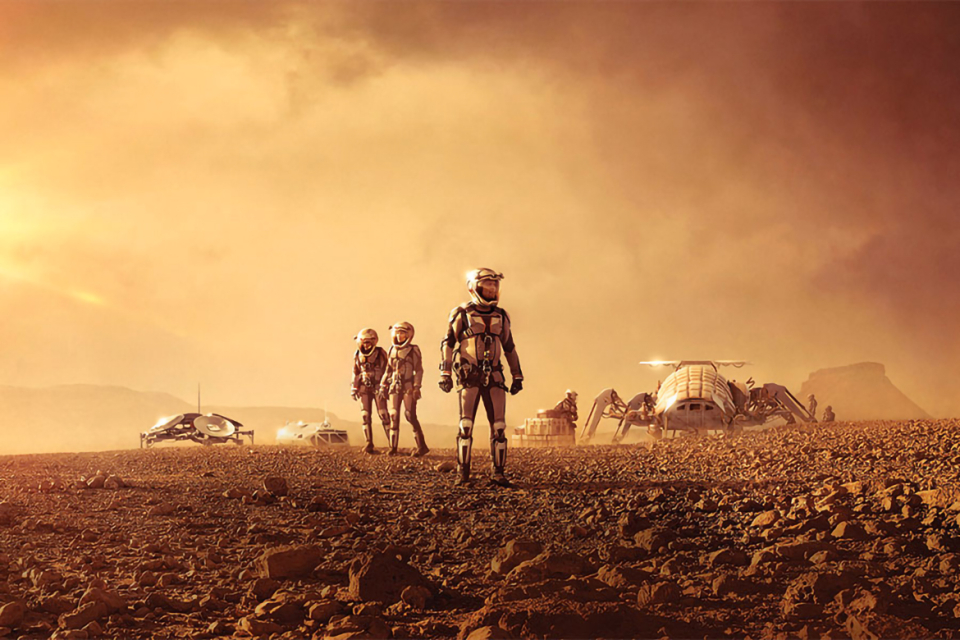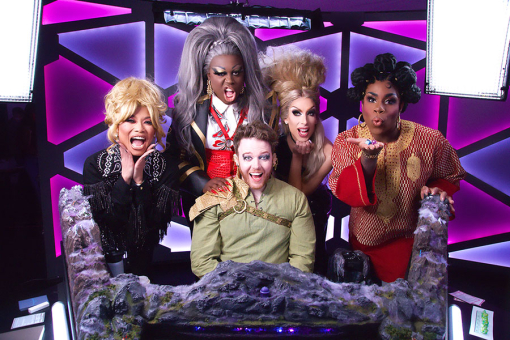When your brand can take you anywhere, where do you go?
To Mars, of course.
The recent shift in programming strategy at National Geographic began last fall with the premiere of Mars, a six-part series from Hollywood heavy-weights Brian Grazer and Ron Howard. Combining scripted drama and special effects with documentary segments, the series followed a 2033 mission to the red planet in its debut season; a second has already been confirmed.
“We are taking much bigger swings — more audacious, more epic, more creatively ambitious,” says Courteney Monroe, National Geographic Global Networks CEO. “Our vision is to become the world’s leading destination for premium science, adventure and exploration content.”
National Geographic — known as National Geographic Channel until its 2016 rebrand — had populated its line-up with male-skewing reality shows in the past few years.
“We weren’t as successful at that genre as some of our competitors, and that’s not really what people expect from National Geographic,” Monroe reflects. “We are in this era of so much competition, so much great content — and so much clutter, quite frankly. There’s no way to break through without being exceptional or distinctive.”
So the network adopted a quality-over-quantity approach — seeking content with both elevated storytelling and visual impact. “This is not something we’re doing with just one or two programs,” she points out. “It’s our entire schedule.”
The network also hired Carolyn Bernstein, as executive vice-president and head of global scripted development and production, to bring in more scripted content; in 2017 that will include the anthology series Genius, another project from Grazer and Howard’s Imagine Entertainment.
The first season of Genius will dramatize the life of Albert Einstein, drawing from Walter Isaacson’s biography. Howard, who had not previously directed scripted primetime television, directed the first episode of the series, which casts Geoffrey Rush as the older Einstein and Johnny Flynn as the young scientist.
Also airing in 2017 is the scripted miniseries The Long Road Home. Produced by Mike Medavoy, it is based on a book by ABC News correspondent Martha Raddatz about a cavalry division from Ford Hood, Texas, that was ambushed in Sadr City during the Iraq War in what came to be known as Black Sunday.
In the non-scripted realm, National Geographic will run a slate of feature documentaries, including Sebastian Junger’s Hell on Earth: The Fall of Syria and the Rise of ISIS; Alex Gibney’s Water & Power: A California Heist; Simon Chinn and Jason Chinn’s LA 92, which looks back at the Los Angeles riots; and a yet-to-be-titled documentary on Jane Goodall from Brett Morgen.
One Strange Rock is an event series on tap for next year. “It is a 2018 project because it’s 100 weeks in production,” Monroe explains. Produced by Darren Aronofsky and Nutopia, the natural-history series will explore the fragility of life on Earth.
To land the big-name talent behind these programs, Monroe embarked on “a charm offensive” back in 2015. Armed with funds from National Geographic partner 21st Century Fox, she held meetings with the creative community, getting the word out that National Geographic wanted to work with A-listers — and had the budget to do so.
The National Geographic brand “opened a million doors for us,” she says. “Everybody grew up with it. Everybody has a strong affection for it. Everybody respects it.”
This article originally appeared in emmy magazine, Issue No. 1, 2017












